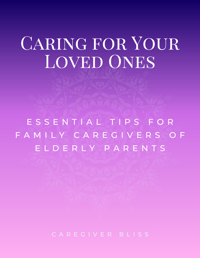Alzheimer’s in Aging Parents: Everything You Need to Know

As our parents grow older, we may notice changes in their memory and cognitive abilities. Alzheimer’s disease is one of the most common causes of memory loss and cognitive decline in aging parents.
In this article, we will explore everything you need to know about Alzheimer’s, including its symptoms, risk factors, diagnosis, and available support.
What is Alzheimer’s Disease?
Alzheimer’s disease is a progressive brain disorder that affects memory, thinking, and behavior. It slowly impairs a person’s ability to carry out daily activities, leading to difficulties in communication, problem-solving, and decision-making. In the early stages, individuals may experience mild forgetfulness, but as the disease advances, it becomes more severe, ultimately impacting their independence and quality of life.
Symptoms of Alzheimer’s Disease
The symptoms of Alzheimer’s disease can vary from person to person, but some common signs to look out for include:
- Memory loss: Frequent forgetfulness, such as forgetting recent events or repeatedly asking the same questions.
- Confusion: Feeling disoriented or getting lost in familiar places.
- Trouble with language: Struggling to find the right words in conversations or writing.
- Difficulty completing familiar tasks: Facing challenges in activities they once performed with ease, like cooking or dressing.
- Misplacing items: Putting things in unusual places and being unable to retrace steps to find them.
- Poor judgment: Making uncharacteristic decisions, like giving away large sums of money to strangers.
- Changes in mood and personality: Becoming anxious, agitated, or withdrawn.
It’s essential to note that occasional memory lapses are a normal part of aging, but persistent and worsening symptoms could indicate something more serious.
Risk Factors for Alzheimer’s Disease
While the exact cause of Alzheimer’s disease remains unknown, researchers have identified several risk factors that may increase the likelihood of developing the condition:
- Age: The risk of Alzheimer’s increases with age, especially after 65 years.
- Family history: Having a close relative with Alzheimer’s raises the risk of developing the disease.
- Genetics: Certain genes, such as the APOE ε4 allele, are associated with a higher risk of Alzheimer’s.
- Lifestyle factors: Poor diet, lack of exercise, smoking, and excessive alcohol consumption may contribute to the risk.
- Head injuries: A history of severe head injuries may increase the likelihood of developing Alzheimer’s later in life.
Diagnosis and Treatment for Alzheimer’s Disease
If you suspect that your aging parent might have Alzheimer’s disease, it’s crucial to seek a medical evaluation. A physician will conduct a thorough assessment, including medical history, cognitive tests, and sometimes brain imaging, to make an accurate diagnosis.
While there is currently no cure for Alzheimer’s, early detection allows for better management and treatment. Some medications can temporarily alleviate symptoms and slow down the disease’s progression. Additionally, non-drug approaches, like cognitive stimulation and lifestyle changes, may improve overall well-being and functioning.
Support and Caregiving
Alzheimer’s affects not only the person diagnosed but also their family and caregivers. Coping with the challenges of this disease can be emotionally and physically demanding. However, several resources are available to provide support and guidance:
- Alzheimer’s support groups: Joining a support group can help caregivers connect with others facing similar challenges and share experiences and coping strategies.
- Respite care: Seeking assistance from other family members, friends, or professional caregivers can give primary caregivers much-needed breaks to rest and recharge.
- Memory care facilities: In advanced stages, specialized care facilities can provide tailored support for individuals with Alzheimer’s.
Conclusion
As our parents age, understanding and recognizing the signs of Alzheimer’s disease is essential for early detection and management. If you suspect that your aging parent may have Alzheimer’s, don’t hesitate to seek medical advice. Remember, you are not alone, and there are resources and support available to help you and your family navigate this challenging journey with compassion and care.
We hope you found this comprehensive guide on Alzheimer’s in aging parents informative and helpful. We’d love to hear your thoughts and experiences in the comments below. Share your stories, tips, or any other insights related to Alzheimer’s and caregiving, and let’s support one another through this journey. Your comments can make a difference!
Alzheimer’s Disease Resource Page
Delve into the realm of Alzheimer's Disease resources, gaining a deeper understanding of the benefits, considerations, and choices available. Explore our comprehensive Alzheimer's Disease Resource Page for valuable insights, practical tips, and expert guidance on navigating the challenges associated with Alzheimer's, bridging the gap between independent living and specialized care facilities.
Free Guide:
Caring For Your Loved Ones
 Attention family caregivers! Are you struggling to provide the best care for your aging parents? Don't worry, we've got you covered.
Attention family caregivers! Are you struggling to provide the best care for your aging parents? Don't worry, we've got you covered.
Download our free guide, Caring for Your Loved Ones: 10 Essential Tips for Family Caregivers of Elderly Parents, and unlock the secrets to becoming an exceptional caregiver.
From adapting the home environment to promoting independence, this invaluable resource will transform your caregiving experience into a more rewarding journey. Don't wait—give your loved ones the care they deserve, and download your free copy today!
